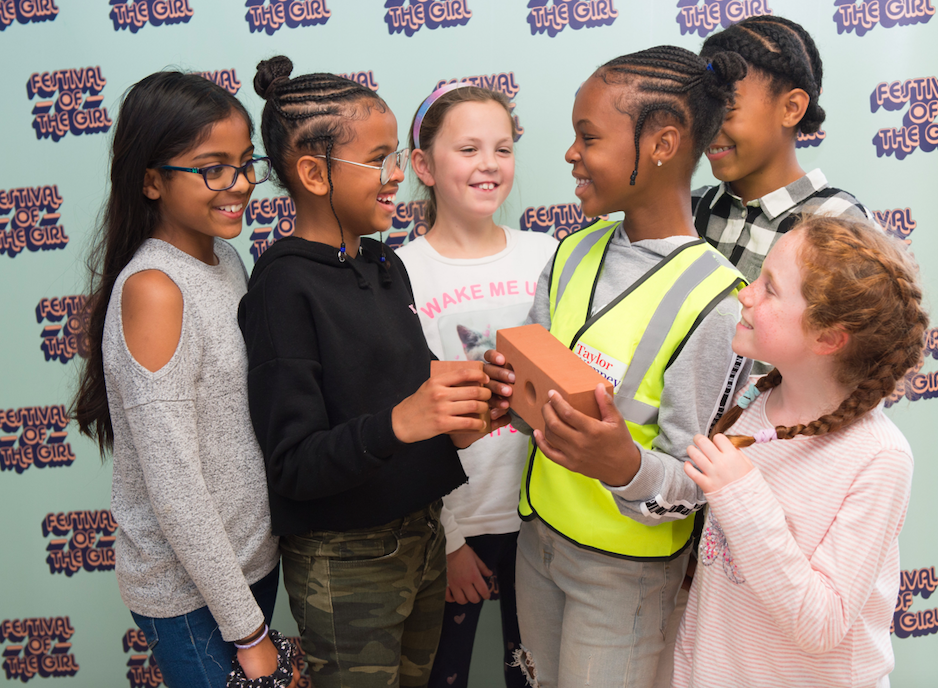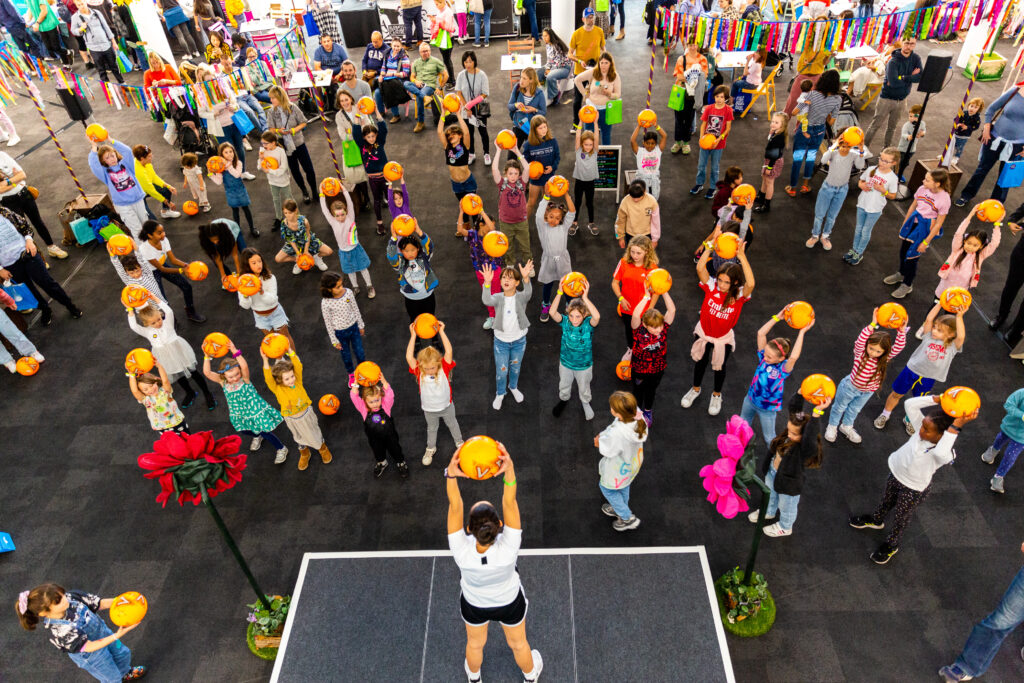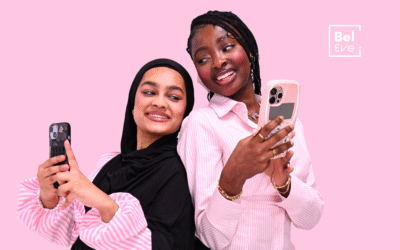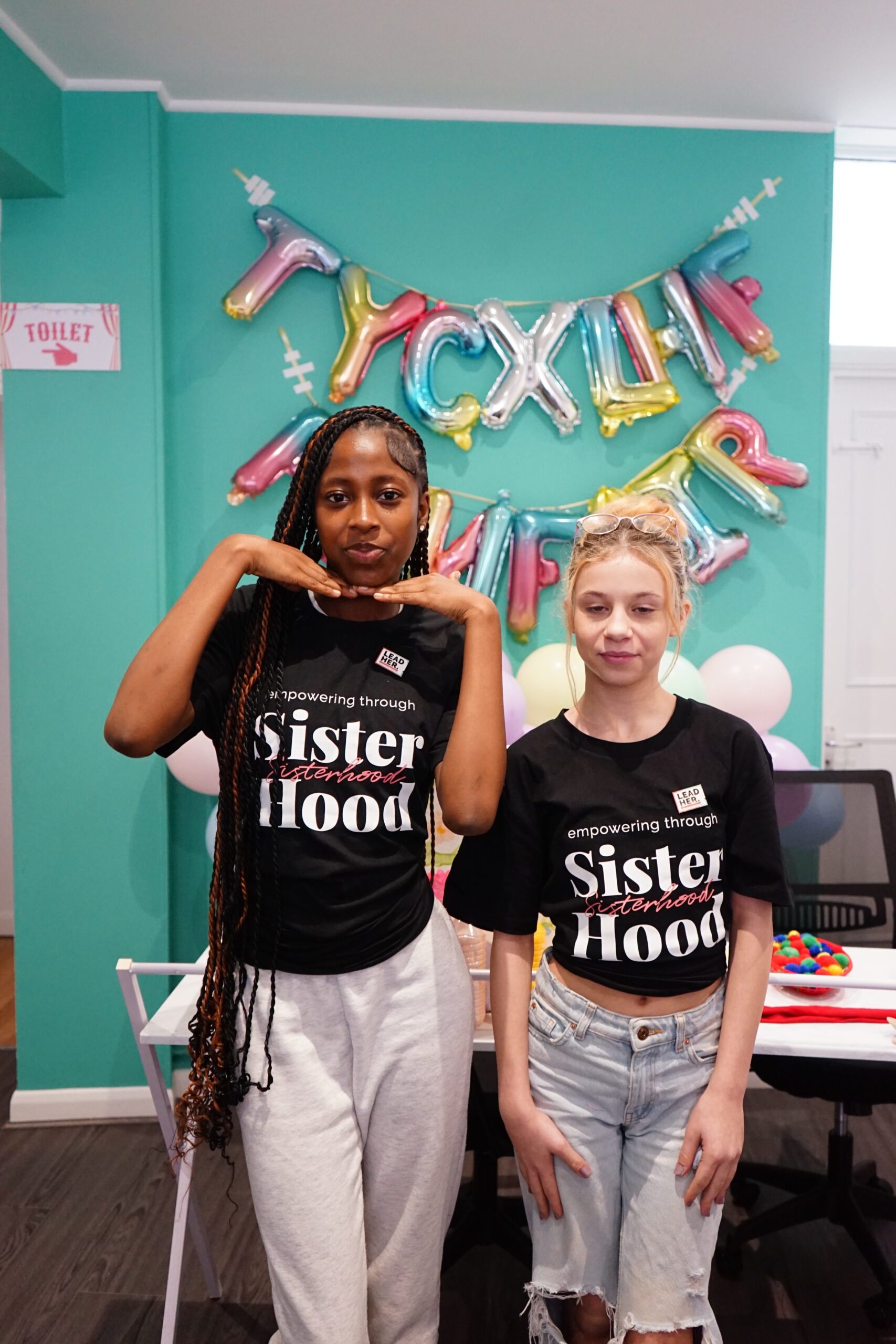Festival of The Girl was born in 2019 from frustration turned to action. Co-founder Jen Toll tells the story.
We want our daughters (and yours) to grow up in a different world. So we are doing our best to change it.


Dear Girl,
You may think you’re equal. May believe with all your heart. And the world will try and stop you. Pushed back before you start.
You’ll begin to doubt your confidence – in case they are afraid. Not knowing it’s the system saying only boys are brave.
You’ll jump and punch, and kick and slide, and run and scrape your knees. “But boys are so much worse!” they’ll say. And you’ll start to believe.
However hard your parents try; the shops will sell you pink. And passive, pretty flowers. “Why not monster trucks?” you’ll think.
You’ll get called sweetheart, darling, love or pet. Even a Princess. But never champ or buddy. No matter how much you impress.
You’ll love to learn when you hit school; coding, science, books. And gradually you’ll see a change – it matters how you look.
The boys you know, they’ll be praised for what their body does. But you’ll see only flaws in yours – spots or fat or fuzz.
Women have the vote, they’ll say. There’s a female CEO. But ‘they’ are often men. And we still have so far to go.
We are the changing future. We’re the mums and grans and aunts. We’re breaking down society to give you all your chance.
We’ll try and change the system, one step at a time. We’ll teach you to always question. When it isn’t always ‘fine’.
And so dear girl, remember to be curious and true. Challenge every limitation. Our festival is for you.
What happens at the festival? We expose girls to role models and experiences that they might not get in everyday life. Activities are designed specifically to get girls thinking about their own future and build their confidence. And most importantly they’re designed for girls to have fun.
This year’s festival is on Sat 5th and Sun 6th October at the Business Design Centre in Islington. Take a look at this year’s line-up here.
Girls also receive a goody bag and Festival of The Girl journal upon arrival.
Who is it for? Girls aged around 7-11. By the age of 6, girls already consider boys more likely to show brilliance and more suited to “really, really smart” activities than their own gender*. We could have targeted a younger age group, but felt that the upper part of primary school would allow us to organise more engaging activities. Also, we wanted to reach girls before starting secondary school when they are surrounded by even more prevalent gender stereotyping and higher social media exposure.
*research from UN Women.
And if you’re wondering ‘what about boys?’. We want to assure you we love boys too and they’d be welcome at our festivals. Everyone is welcome. We want equality and equity for all.
So what can I do? Firstly, join us at this year’s festival. Link here for tickets. There is also a pay-what-you-can option.
Secondly, spread the word to any networks, parents, or schools who have access to the girls we are trying to reach. Why not send a quick email to your local primary school? It is thanks to parents and carers spreading the word that we have grown as much as we have.
Thirdly, help us with a kind donation: we are currently running at a financial deficit, so any help is hugely appreciated. Donate here.
What can I do as a parent/carer? While planning for our festivals we are always researching, listening, reading and interviewing as much as we can. While the festival itself is for the kids, we wanted to offer something for the parents.
So to close our list, here are our 7 practical tips to parent in a less-stereotyped way:
Audit their influences. When it comes to the books and films they watch and read – pay attention. Either remove those with outdated stereotypes by simply not reading/watching them, or discuss what you notice with your child. You can change them directly (e.g. ‘mum must have had a day off work that day’), confine them to history (e.g. ‘it’s not like that these days’), or challenge them (e.g. ‘that seems strange to me that no girls are playing football here, what do you think?’)
Do the work to find role models. It’s still the case that most readily-available media shows people who are white and male. The female and BAME role models ARE there, they are just harder to find. Take the time to find those role models (Instagram is a great place to start) and you’ll be amazed at how much is out there that you can share with your girls.
Lead by example. It’s uncomfortable to challenge something someone says that is rooted in bias, particularly if it’s a friend or colleague who has said it. Ultimately you are in the right to question it though, from the simple use of the word ‘fireman’ (firefighter is much better) – to more overt comments about ‘beautiful girls giving their fathers trouble when they grow up’ – your kids need to know that’s not ok to say, so why not show them.
Question where their decisions have come from. If they want to do a certain thing (paint their room pink) or not do a certain thing (give up playing a sport) it’s ok to ask where that decision has come from. Do they really want that? Do they know why they want that? Do they know what alternatives there are? Do they know what aspects are from them, and what aspects are from peer/societal pressure? Once you’ve had that discussion, be ok with the choice they then make (assuming it’s not illegal or dangerous!). You’re teaching them independent thought and choice, without forcing them.
Mind your labels. Fixed labels (‘you’re so clever’) encourage fixed-mindset beliefs (‘I’m clever’ or ‘I’m not clever’). These beliefs create a tendency for a person to see and do only things that support them, and restrict a person’s ability to try new things or learn from failure. While this can absolutely happen to both genders, it is more prevalent in girls. Encourage a growth mindset by praising the behaviour or effort, vs labelling the outcome. ‘Great attention on that reading’ (vs. ‘you’re a good reader’) ‘well done for focusing on the way you swung the racket’ (vs. ‘you’re an excellent tennis player’).
Discourage perfection. Girls are told (subtly and unsubtly) that they have to be perfect. A perfect look, a perfect size, perfect behaviour. Social media and photo post-production has made this issue considerably worse. I regularly tell my daughter that there’s no such thing as perfect. Because in a world where you can constantly compare online, you’ll always be worse off. Practice makes progress. Not practice makes perfect.
Keep trying. Challenging stereotypes is a hard thing to do because the system (society) is against you. Realise you won’t catch everything. And also realise you have the power to change something and call it out when it doesn’t look right. Use the power of social media for good and comment and message a brand if they’re doing something that reinforces unnecessary stereotypes.
And that’s the end of our list (for now). Thank you for reading.
#thefutureishers







0 Comments